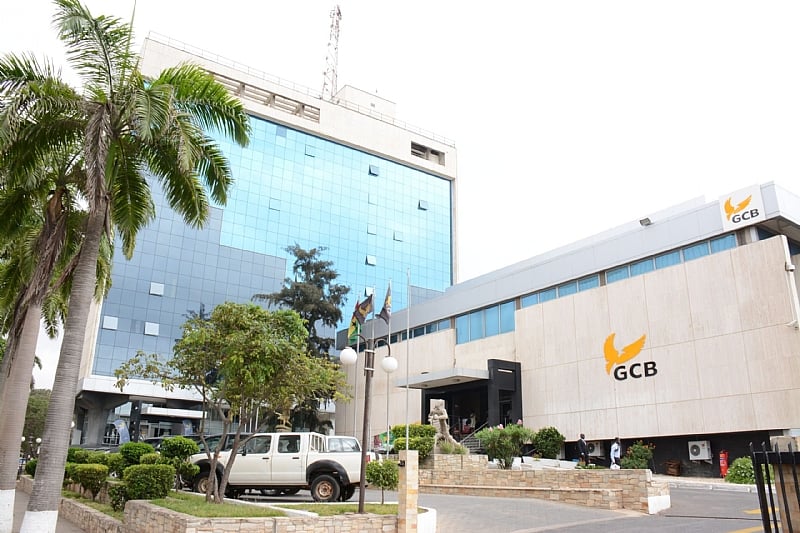GCB Bank Limited formally known as Ghana Commercial Bank is the largest bank in Ghana in terms of total operating assets.
GCB’s drastic modifications to e-banking rates, which went into effect before May but were slated to start in May 2025, have drawn condemnation.
“When the rivers dry up, we see who digs the wells.” In the banking world, trust is the well that financial institutions dig for their customers. GCB’s new e-banking tariffs have sparked outrage, raising questions about whether the bank is digging a well of trust or a pit of frustration. Are these fees a step forward or a step backward for financial inclusivity in Ghana?
The revised fee structure, which includes monthly charges for E-Bundle services and fees for transactions made via mobile apps and ATMs, marks a worrying trend where customers are increasingly burdened in the digital banking sphere. It seems that GCB is prioritizing profit over customer satisfaction and financial inclusivity, potentially leading to a decline in the use of its digital platforms.
The newly introduced fee structure consists of:
– E-Bundle Fees: GHS 15 per month for most customers, while those over 60 years of age are exempt.
– Transactions: A fee of 1% of the transfer amount, capped at GHS 20, which translates into significant costs for larger transactions.
– Wallet -to – Bank: 1% of the transfer amount is charged each time I wish to make a personal deposit into my GCB account.
– ATM Usage Fees: GHS 20 charged per transaction after an initial withdrawal of up to GHS 10,000.
Customers are being charged fees every time they deposit money into their GCB accounts via MoMo, and the more they deposit, the more they pay in fees. This seems unfair – shouldn’t depositing a person’s own money be fee-free?
While this fee structure might appear manageable at first glance, a deeper analysis reveals its unfairness. Customers are now expected to pay for accessing their own money, first through deposits and again upon withdrawal. This raises serious ethical concerns about how financial institutions should operate, especially in a society where access to banking is already a significant challenge for many.
In a time when digital banking should be enhancing accessibility and convenience, GCB’s new tariffs create barriers that disincentivize the very services they aim to promote. Instead of facilitating easy management of finances, these fees disproportionately affect low- and middle-income customers—those who are most likely to struggle with additional charges.
By imposing extra fee for basic E-banking services, GCB is effectively hindering customers’ rights to fair access to banking. This move is especially alarming in a context where financial literacy and technological access present hurdles for considerable segments of the Ghanaian population. Imposing extra fees for services that should be free or reasonably priced undermines the very essence of digital banking and alienates many potential users.
The public outcry against GCB’s revised tariffs closely mirrors the frustrations experienced during the implementation of the contentious E-Levy—a tax on electronic transactions that sparked widespread protests. Many Ghanaians felt burdened by both policies, perceiving them as punitive measures against routine transactions like sending or receiving money.
Just like the E-Levy, GCB’s new tariffs seem to target frequent digital banking users without considering the broader economic implications for these customers. In an environment where many are inclined to stick to cash transactions to avoid fees, GCB risks sending the message that it is more invested in monetizing its services than ensuring accessible banking.
The new tariffs are likely to provoke feelings of anger and frustration among customers, who may perceive GCB as exploiting them. Financial institutions thrive on trust and loyalty, and GCB’s current course may potentially sever its relationship with clients. Ideally, the relationship between a bank and its customers should be mutually beneficial, where clients feel valued rather than treated merely as sources of revenue.
With an increasing number of alternative financial services—from mobile money platforms to fintech solutions—GCB risks losing a substantial portion of its customer base if these tariffs remain unaddressed. In a competitive market, customer loyalty is crucial, and policies that discourage the use of banking services can lead to a troubling decline in satisfaction and retention rates.
It is imperative for GCB as a financial institutions to reevaluate their tariff structures, considering their societal ramifications. The enforcement of such punitive fees is not merely short-sighted; it also contradicts the principles of financial inclusion that the industry must uphold.
Rather than perpetuating a model that exacerbates economic disparities, GCB should prioritize customer-centric approaches that promote accessible financial services.
The newly enacted policy by GCB is a problematic move that needs reconsideration. The bank must prioritize equity and customer satisfaction in its operations to rebuild trust and encourage the use of digital banking services. Such a customer-friendly approach will contribute not only to increased customer loyalty but also to the broader goal of economic development in Ghana. GCB needs to continuously engage with her customers to better understand their needs and make changes that genuinely support financial inclusivity.
By Evans Mawunyo Tsikata


